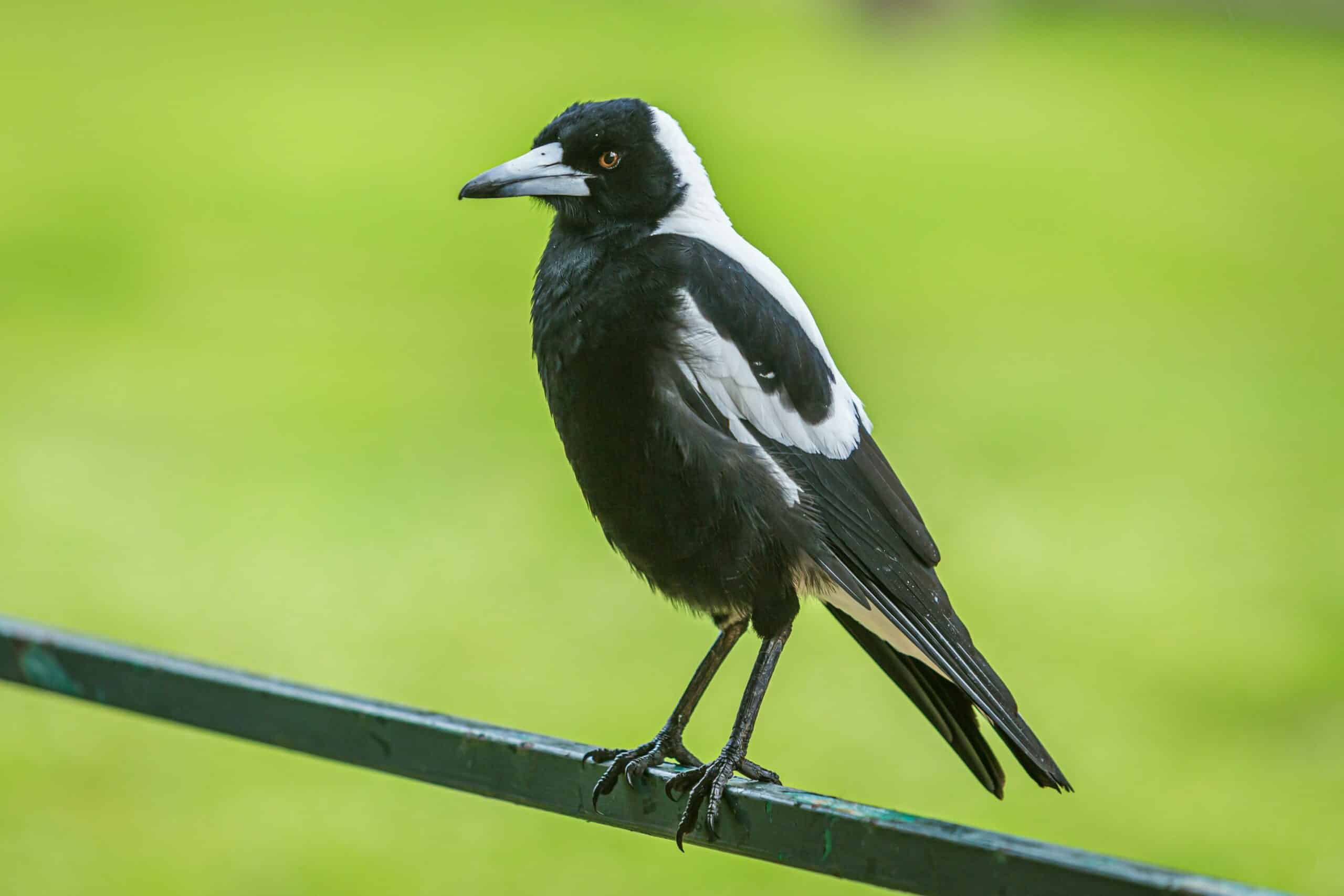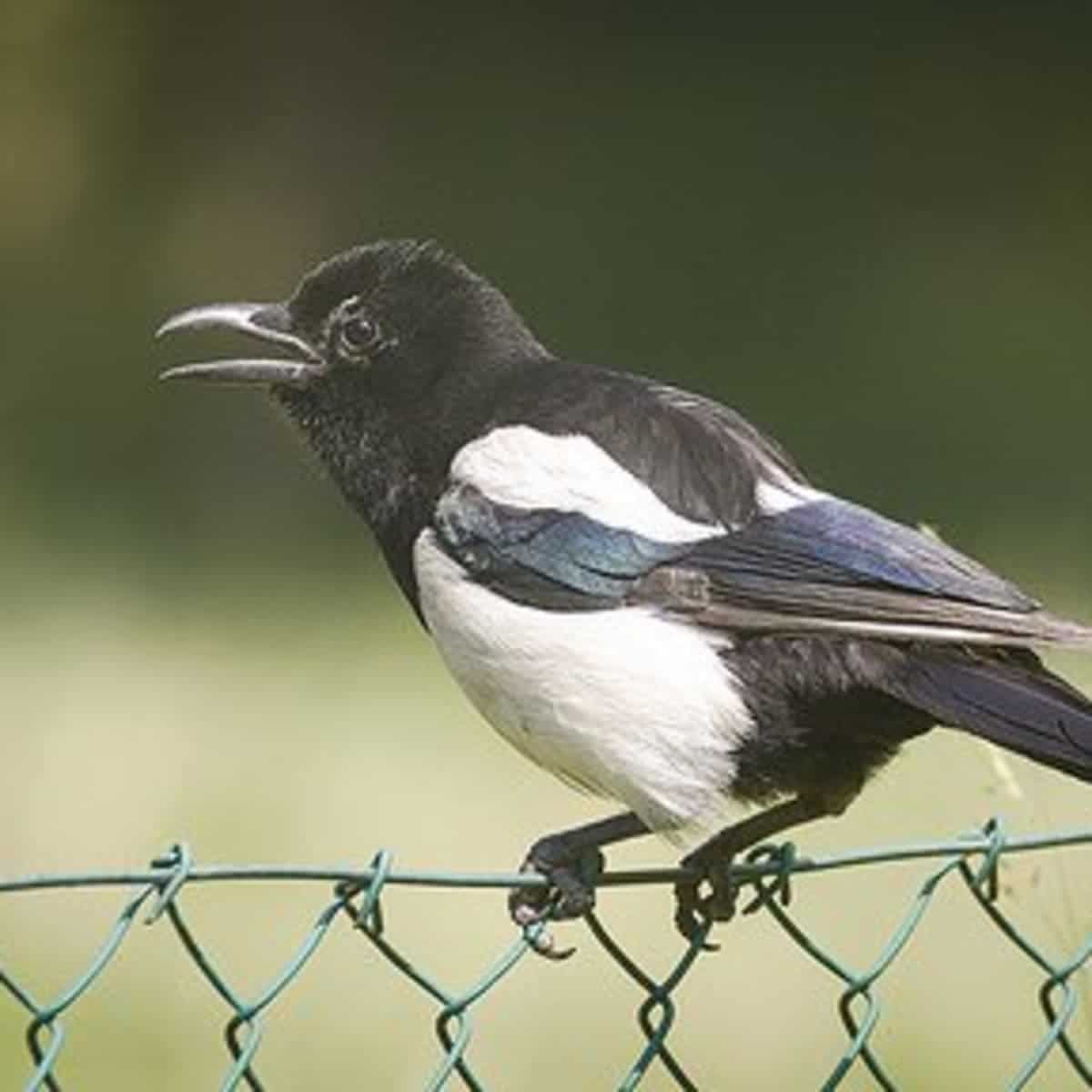Intrigued by the superstitions and etymology surrounding the magpie, linguist Marten van der Meulen explores the rich and varied history of bird names across different cultures.
I am blessed with a house with a garden near a park, where birdlife is abundant. A woodpecker recently visited our tree, herons occasionally visit the hedge, and various birds like tits, blackbirds, sparrows, crows, jackdaws, and parakeets regularly visit our garden. Very enjoyable for everyone, including the little ones.
We also have a pair of magpies frequently visiting. They have no shame at all and fearlessly hop through our freshly hung laundry. Now magpie isn’t a word that crosses my mind daily, but it surprisingly and unexpectedly popped up in my favorite soccer podcast! The hosts were talking about a certain superstition around eksters. Or rather, magpies, as the podcast is in English. It is apparently common to greet a single magpie with “Good morning, Mr. Magpie”. This practice exists in England and Ireland, but also in the Netherlands. Nevertheless, there are countless superstitions associated with the magpie, some of which relate to its role in the crucifixion of Jesus.
 Good morning, Mr. Magpie
Good morning, Mr. Magpie© Chris Stenger / Unsplash
This is all very interesting, but it’s part of the Dutch folklore. As a linguist, I suddenly wondered about the origin of the word magpie. The word is unrelated to the Dutch ekster. Yet, that doesn’t say much, as many bird names are very different in English and Dutch. Consider merel and blackbird, meeuw and seagull, spreeuw and starling. Struisvogel and ostrich turn out to be related, much to my surprise. Most bird names are easy to understand. I mean, blackbird is a no-brainer. But magpie? Both mag and pie can’t be traced back.
Mag likely
originates from the name Margaret, which was shortened to Maggie and then Mag. Maybe this name symbolized the chatty nature of magpies, which is what they are known for. It reminds me of nieuwsgierig Aagje (nosey Parker). There is no inherent reason why Aagje is more curious than Aaltje or Geertruida. It is just a name that was chosen at some point, and then it stuck. The second part of the word is much more debated. Possibly pie comes from the Latin pica, meaning magpie. But pie could also be a cute nickname, similar to how we use cutie pie and sweetie pie. In Dutch, we often use diminutive form as terms of endearment, so magpie can be translated as kwebbeltje (little chatterbox). Pretty accurate!
There are countless superstitions associated with the magpie, some of which relate to its role in the crucifixion of Jesus
Another fun fact about this name is that it varies a lot across England. This kind of variation is quite common with dialects, as you can see here. Various words for magpie are clearly related: magot pie, mock-a-pie, nanpie, and madge show a strong resemblance. Further removed are the Scottish terms pyat, ninut, and piannot. One of the oldest names is also the most amusing: haggister. This name used to be a common alternative for magpie, but is now only found in limited, local contexts. There could be a connection with haggis, a traditional Scottish dish with unclear origins. I will spare the details for now. It’s clear that once you start exploring etymology, you will inevitably unravel more connections.
All this is great, but I know Dutch speakers are already wondering: what about the ekster? Don’t worry, I’ve got some fun facts about that too, although those about the magpie are more exciting. The first thing we can note is that ekster is related to haggister. Say these words out loud, one after the other, and you will hear how similar they sound. Furthermore, the word ekster has been in use since at least 1240, when it was recorded in a remarkably early dictionary. Thirdly, the origin of the word ekster is not entirely clear. The first part, ek, originates from an ancient Proto-Germanic element *ag, while the second part, according to various etymological sources, comes from *str, whose meaning remains unclear.
The term “Proto-Germanic element” needs some explanation. Proto-Germanic, or Ancient Germanic, refers to the most ancient form of the Germanic language that is currently known. We don’t have direct evidence of this proto-language, but it has been reconstructed through linguistic comparison and our knowledge of phonological developments. The asterisk before ag
indicates a lack of empirical evidence, as this element has not been recorded in written sources. However, we have a reasonable assumption that the word likely existed in some form. Anyway, the approaches used in these reconstructions offer fascinating material for another column (or an entire book).
 Mag likely originates from the name Margaret, which was shortened to Maggie and then Mag. Maybe this name symbolized the chatty nature of magpies, which is what they are known for.
Mag likely originates from the name Margaret, which was shortened to Maggie and then Mag. Maybe this name symbolized the chatty nature of magpies, which is what they are known for.© Hedera Baltica / Flickr
When it comes to the distribution of dialects, ekster is once more less interesting than magpie. The main variants that emerge are ekster, akster, and aster. This map
shows a few other variants as well, but they are mainly found in specific regions. Moreover, they all share a common origin. This differs from magpie, or many other everyday terms related to household, garden, and kitchen matters. There are numerous names for the humble meikever (maybug), including molenaar, ekkeltiek, scharrewever, and ronker. These terms are clearly unrelated, as their geographic distribution reveals an interesting map. Similar, but significantly less versatile, are words like paardenbloem
(dandelion), zakdoek
(handkerchief), and mier
(ant). In recent years, many dialect maps have been made available online. I encourage everyone to spend an evening exploring the Kaartenbank, the Dialectloket, the website of Jan Stroop, or the Database of the Southern Dutch Dialects. Linguistic enjoyment guaranteed!
There is another fun fact about the magpie that might resonate with my readers who grew up in the 1990s and later. The bird’s Latin name, Pica pica, is identical to the iconic cry of the legendary Pokémon, Pikachu. This similarity is likely a coincidence, as Pica pica
refers to the Eurasian magpie, while Japan is home to a different species, Pica serica, the Oriental magpie. There are many other interesting magpie names, such as the Arabian magpie and the Maghreb magpie. But that’s a magpie-, or rather, rabbit hole to explore further next time, just like the origin of the word magpie in other European languages. This list has definitely sparked my interest.










